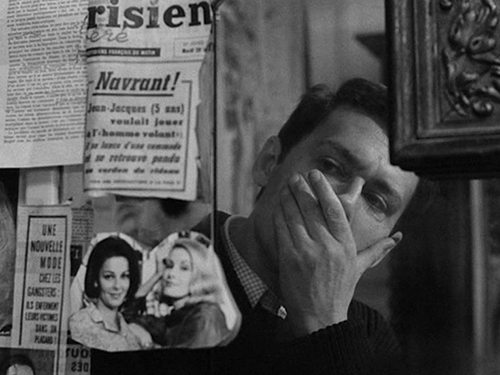
« J’aurai tant voulu être aimé qu’il me semble que j’aime. »
Alain Leroy
“He has effected something phenomenal this time, having turned literature into film, photographed the meaning of an unsubstantial, touching, and rather famous book, and given its tragic intention a clarity it never achieved in print.”
Jean Genet
“The only quality common to the films of Louis Malle is the restless intelligence one senses in them, and it must be this very quality that has led Malle to try such different subjects and styles. A new Chabrol or a Losey is as easily recognizable as a Magritte, but even film enthusiasts have only a vague idea of Malle’s work. Had Malle gone on making variations of almost any one of his films, it is practically certain he would have been acclaimed long ago, but a director who is impatient and dissatisfied and never tackles the same problem twice gives reviewers trouble and is likely to be dismissed as a dilettante.”
Pauline Kael1
“Malle repeatedly said that The Fire Within was the first of his films to satisfy him totally. It’s also probably the one that worked as an exorcism and liberated him from his former persona, that of a young man living at night, having brief encounters, and blessed with an easy existence and (at least to his eyes) undeserved professional successes. At the age of thirty, and facing the same existential issues as Alain, Malle was giving an opposite answer, throwing away what he hated in himself and clearing the way for a quest of perfection and his love of life.”
Michel Ciment2
- 1Pauline Kael, “Louis Malle’s Portrait of the Artist as a Young Dog,” The New Yorker, October 23, 1971.
- 2Michel Ciment, “The Fire Within: Day of the Dead,” Criterion, 2008.